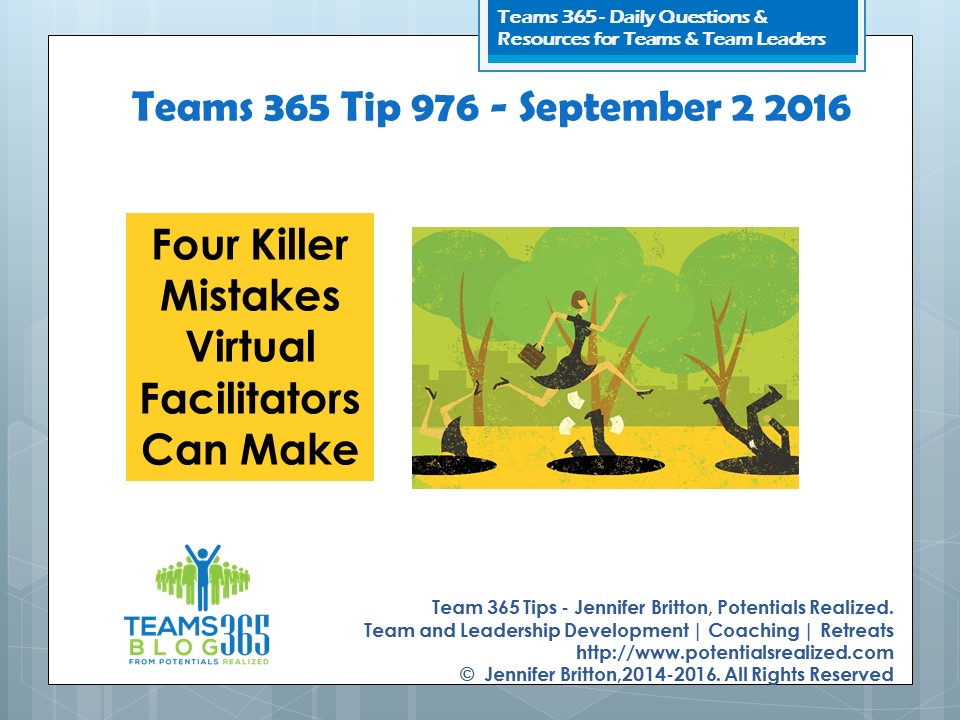Today's post explores four key mistakes virtual facilitators can make. These are things that can be useful to always keep in mind, regardless of the size or time of our next virtual event.
Mistake #1 - Not being prepared. A lot of things are going on when you lead a virtual meeting, training session or event. Keeping people's focus is #1 and because group members may not see you , they may be more attuned to the nuances of your voice. If they can see you while you are streaming everything will be picked up on.
Prior to any virtual event, consider what is going to support you in your preparation. How well do you know your materials?
Mistake #2 - Not Knowing the Technology
Every virtual platform has different nuances. Being confident and knowledgeable about your platform is a best practice. Take time in advance to check it out, even if it is only you on the line. most platforms come with detailed video tutorials and FAQs. Have these on hand and consider what could possibly go wrong, and if so, what you will do about it.
Mistake #3 - Not Knowing the Audience
Knowing your audience and helping them connect early on with the WIIFM (What's in it for me? ) sets everyone up for success. In the virtual domain, trust and connection plays an even more critical role in engagement. What can you do to meet or connect with the audience before you get started? This could be as simple as a personal email introducing yourself and the purpose of your meeting, or as elaborate and time intensive as short pre-calls with each person.
Watch out for these assumptions you might be holding about your audience"
- They know what the purpose of this call is.
- They came prepared
- They are not multi-tasking
- They know how to use the technology
- They all have the same needs
- They will follow up immediately with what they have said they would do
- Silence means they are getting it
- Silence means they are following you
Mistake #4 - Not having a contingency plan in place
Masterful virtual facilitators operate within the realm of contingency planning. In almost every post or speaking engagement I have given on virtual facilitation, expect the unexpected. What are the possible things that could happen with your program and what will you do if it does?
In my book, Effective Group Coaching, i introduced the accordion principle to facilitation. Where can you shorten the program if things are taking too long, and where can you elongate the program if you need more time?
If you haven't done so I'd also invite you to read Teams365 #972 and #973 which cover ten pitfalls you may face as a virtual facilitator and how to avoid them.
Have a great weekend,
Jennifer
Jennifer Britton
Potentials Realized | Coaching Team Leaders
Check out our newest on-demand course: Teams365 Teamwork Foundations
Follow us on Twitter @Teams365
Join us this fall for a 15 hour Virtual Train-the-trainer in the Virtual Facilitation Skills Intensive program. We'll be covering the best practices of designing and leading virtual calls. The program will be held on Fridays from 3 - 4:30 pm ET starting September 23. Click here to learn more and reserve your spot.

 RSS Feed
RSS Feed





